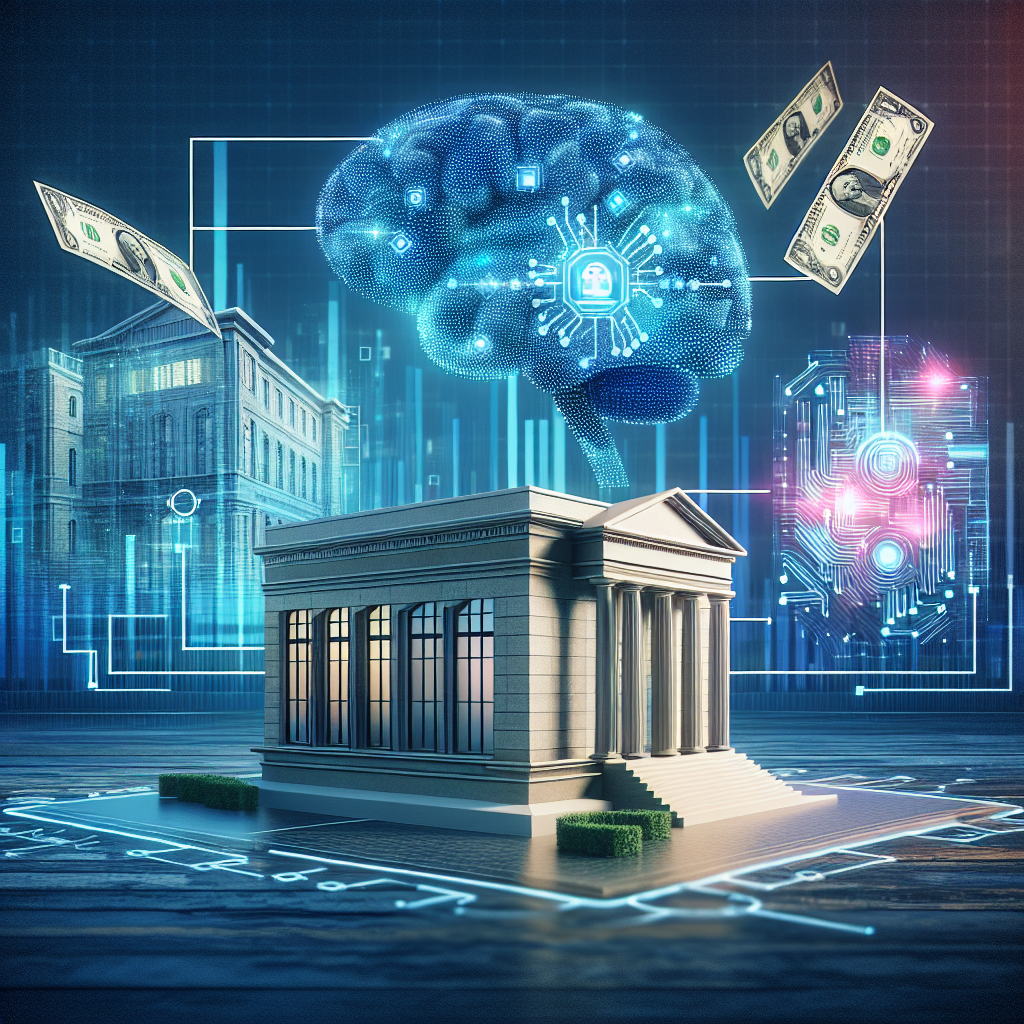The banking industry has undergone significant changes over the years, with advancements in technology playing a key role in shaping its future. One of the most significant technological developments in recent years is the integration of artificial intelligence (AI) into banking operations. AI has the potential to revolutionize the industry by streamlining processes, improving customer experience, and enhancing security measures. In this article, we will explore how AI is transforming the banking industry and what the future holds for this ever-evolving sector.
AI in Banking: Current Landscape
AI is a branch of computer science that aims to create intelligent machines that can perform tasks that typically require human intelligence. In the banking industry, AI is being used to automate repetitive tasks, analyze data, and provide personalized services to customers. Some common applications of AI in banking include:
1. Customer service: AI-powered chatbots are increasingly being used by banks to provide 24/7 customer support. These chatbots can answer customer queries, provide account information, and even assist with transactions.
2. Fraud detection: AI algorithms can analyze large volumes of data to identify patterns and detect fraudulent activities in real-time. This helps banks prevent unauthorized transactions and protect customer accounts.
3. Personalized recommendations: AI can analyze customer data to provide personalized product recommendations, such as credit cards, loans, and investment options. This helps banks tailor their services to individual customer needs.
4. Risk assessment: AI algorithms can assess the creditworthiness of borrowers by analyzing their financial history, spending habits, and other relevant data. This helps banks make more accurate lending decisions and reduce the risk of defaults.
5. Process automation: AI can automate various banking processes, such as account opening, loan approvals, and document verification. This reduces the time and resources required to perform these tasks manually.
The Future of Banking: How AI is Revolutionizing the Industry
The future of banking is increasingly being shaped by AI technologies, which are expected to revolutionize the industry in the coming years. Some of the key ways in which AI is expected to transform banking include:
1. Enhanced customer experience: AI-powered chatbots and virtual assistants are expected to become more sophisticated, providing personalized and seamless customer interactions. Customers will be able to access banking services through voice commands, text messages, and social media platforms, making banking more convenient and accessible.
2. Improved security measures: AI algorithms are continuously evolving to detect and prevent fraudulent activities, such as identity theft, phishing scams, and unauthorized transactions. Banks will increasingly rely on AI to enhance their security measures and protect customer data from cyber threats.
3. Data analytics: AI can analyze large volumes of data to uncover valuable insights that can help banks make informed decisions. By leveraging AI algorithms, banks can better understand customer behavior, identify market trends, and optimize their product offerings.
4. Personalized services: AI can analyze customer data to provide personalized recommendations and offers based on individual preferences and financial goals. Banks can use AI to tailor their services to meet the unique needs of each customer, enhancing customer satisfaction and loyalty.
5. Process optimization: AI can automate routine tasks and streamline banking processes, reducing the time and resources required to perform these tasks manually. This allows banks to operate more efficiently, improve productivity, and focus on delivering value-added services to customers.
FAQs
Q: Will AI replace human employees in the banking industry?
A: While AI technologies are expected to automate certain tasks in the banking industry, they are unlikely to replace human employees entirely. Instead, AI is expected to augment human capabilities, allowing employees to focus on more complex and strategic tasks that require human judgment and creativity.
Q: How will AI impact the job market in the banking industry?
A: AI is expected to create new job opportunities in the banking industry, particularly in roles that require expertise in data analytics, machine learning, and AI technologies. At the same time, some traditional banking roles may be automated or redefined to adapt to the changing technological landscape.
Q: How can banks ensure the security and privacy of customer data when using AI technologies?
A: Banks must implement robust security measures, such as encryption, multi-factor authentication, and data anonymization, to protect customer data when using AI technologies. Additionally, banks should comply with data protection regulations, such as the General Data Protection Regulation (GDPR), to safeguard customer privacy and prevent data breaches.
Q: What are the challenges of implementing AI in the banking industry?
A: Some challenges of implementing AI in the banking industry include data privacy concerns, regulatory compliance, ethical considerations, and the need for skilled AI professionals. Banks must address these challenges to successfully integrate AI technologies into their operations and reap the benefits of AI-driven innovation.
In conclusion, AI is poised to revolutionize the banking industry by enhancing customer experience, improving security measures, and optimizing banking processes. As AI technologies continue to evolve, banks must embrace innovation and adapt to the changing technological landscape to stay competitive in the digital age. By leveraging AI to provide personalized services, streamline operations, and make data-driven decisions, banks can enhance their offerings and deliver value to customers in new and innovative ways.

